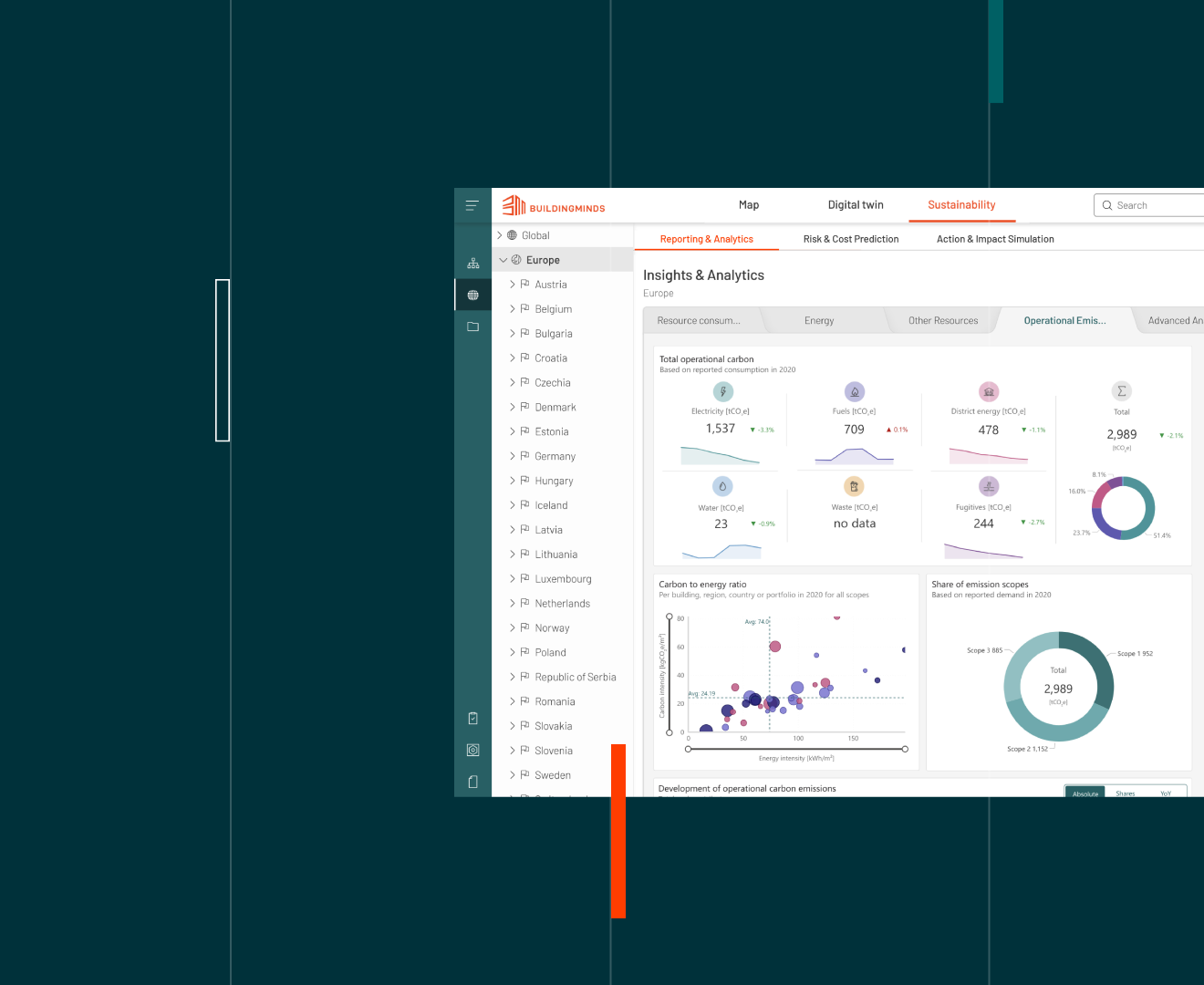Are standards already standard?

Data standards are essential, that is no longer in doubt. Many industries are proving that data standardization is the basis for advancing digitalization and optimizing existing business models as well as developing new ones. For example, Microsoft’s Common Data Models already have been successfully successfully introduced in the automotive and healthcare sectors.
"Harmonized and democratized data enables far more efficient processes, ensures compliance and secures unprecedented data quality."
The advantages are many: harmonized and democratized data enables far more efficient processes, ensures compliance and, thanks to its fusion on one platform, secures unprecedented data quality. However, the greatest added value is what you can achieve on this foundation: the application of machine learning and artificial intelligence, which opens up completely new dimensions for intelligent analyses, and in turn for portfolio management as a whole. The translation of expert knowledge into intelligent algorithms will enable the automation of decisions and processes in the real estate industry.However, the impulse towards industrial change does not spring solely from the opportunities inherent in standardized data.
At least 80 percent of the buildings in 2050 already exist today.
For one thing, users today expect a lot more from real estate. Where, for example, new concepts of work meet digitization, “wellbeing” is becoming not only measurable, but increasingly a criterion for business decisions. Another crucial topic is sustainability, or the carbon footprint of real estate. Reduction in CO2 emissions is developing into far more than just a moral and contractual obligation; in a few years, buildings that are CO2 inefficient will also have become less attractive to financial investors. If you consider that at least 80 percent of the buildings of 2050 already exist today, it becomes clear that there is an urgent need for action. At BuildingMinds, we are firmly convinced that new evaluation criteria can only be integrated into real estate business models with the help of standardization and digitization.
A global data standard for real estate defined by industry and tech experts
However, in order for international evaluation criteria and KPIs to be applicable, they need a frame of reference, i.e. nothing other than jointly defined industry standards that enable international benchmarking wherever possible. This is exactly where the “International Building Performance & Data Initiative” comes in: Together with our partners, we are developing an international industry standard that integrates KPIs and benchmarks into an industry-specific common data model.However, standards only make sense in as far as how they are applied.
An open, compatible and joint effort
The real estate industry is versatile and experiences a variety of business models across an entire life cycle. Our initiative is therefore designed to work with a wide range of partners from the real estate industry and integrate existing frameworks and standards.In working groups on topics such as “Digital Building Twin”, “Sustainability”, “Portfolio Management”, we will cooperate on the integration of specific industry or national standards into the common data model and gradually cover the entire range.We will publish the first version of the Common Data Model as an open standard later this year. With the “International Building Performance & Data Initiative” we will continuously expand, improve and, above all, make it accessible to everyone.Visit the website www.ibpdi.org to learn more.Tobias Decker
Chief Product Officer at BuildingMindsYou can read the German version of the article over at Konii.



